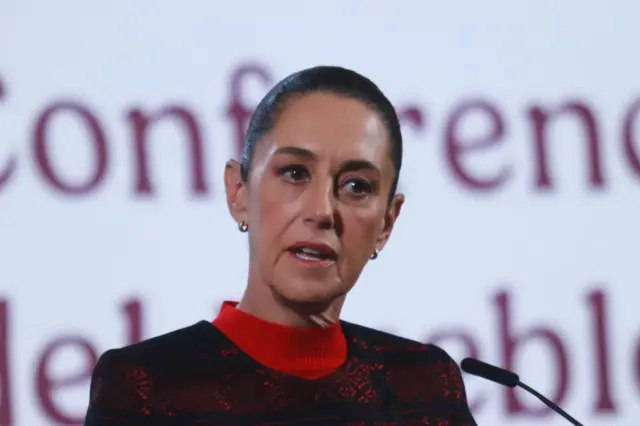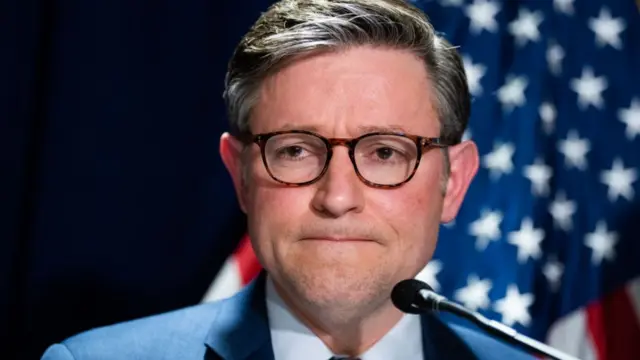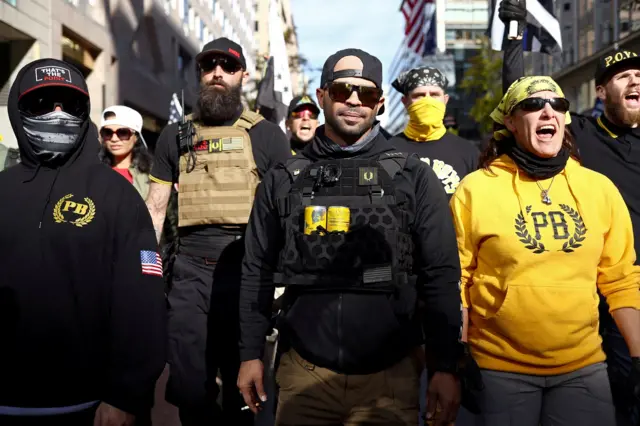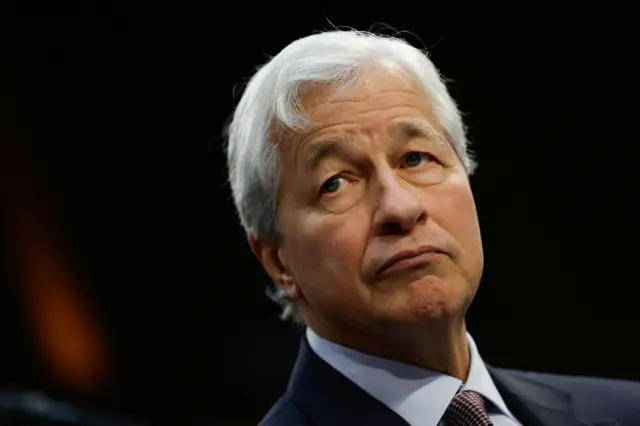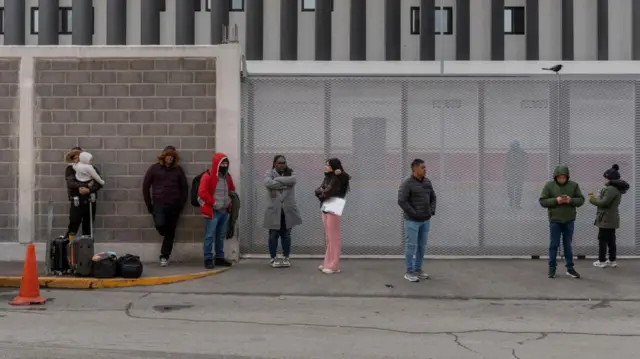Choppers, planes and 1,500 troops to be sent to borderpublished at 22:32 GMT 22 January
 Image source, Getty Images
Image source, Getty ImagesAir Force C-17 Globemaster
We have more details on the US troops who will be deployed to the southern border.
A senior military official tells BBC's US partner, CBS News, that 1,000 army personnel and 500 marines will move to San Diego in California and El Paso in Texas. They will work on the placement of barriers and other "border missions".
They will not be involved in law enforcement, the official says.
Two C-17 and two C-130 aircraft, along with helicopters, will also be sent to the US border with Mexico.
Acting Secretary of Defense Robert Salesses says the department will provide military airlift to support deportation flights of more than 5,000 people he describes as "illegal aliens".

